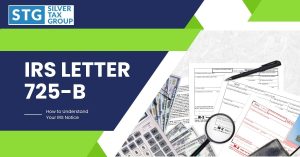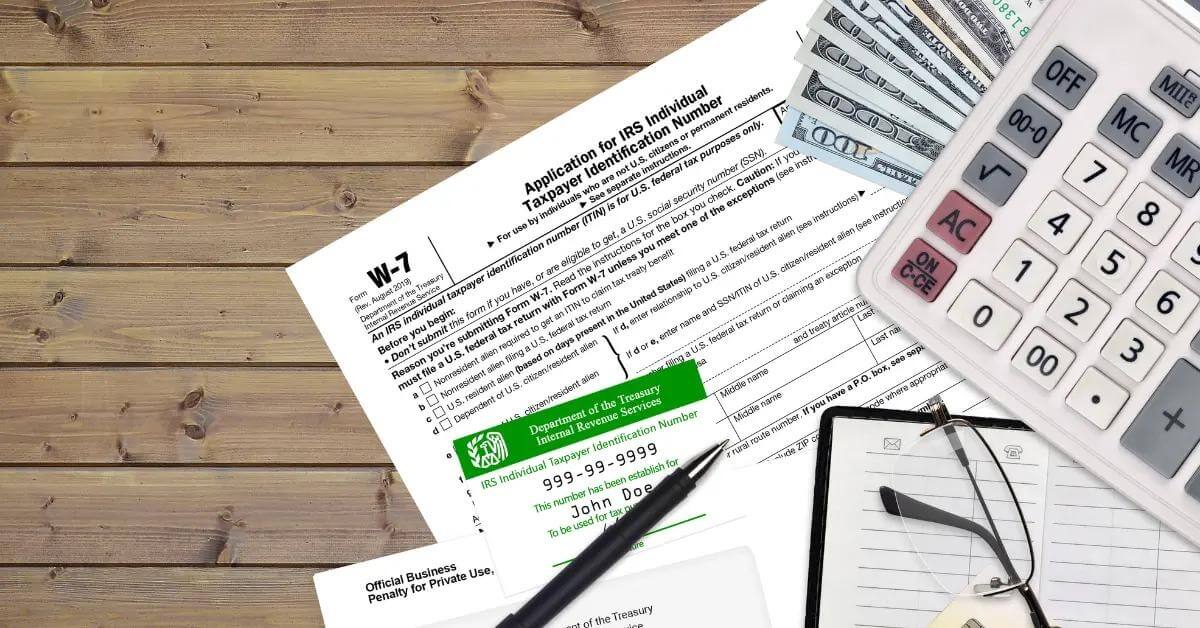If you’re looking to submit Form 911, understanding the intricacies of this essential document is crucial for resolving your tax-related issues. In this comprehensive blog post, we’ll delve into every aspect of IRS Form 911 and how it can provide relief in specific situations.
We will guide you through the purpose and role of Taxpayer Advocate Service (TAS) when dealing with Form 911. We will discuss eligibility criteria, including who can apply and which situations warrant its use.
We’ll look at how to complete and file Form 911 correctly and the resources accessible to aid you. Additionally, we’ll examine other forms of support beyond TAS assistance, such as the Collection Appeals Program and National Taxpayer Advocate assistance.
Lastly, to ensure the IRS takes your request seriously, our discussion will include what not to include in your form submission – specifically frivolous arguments that may hinder rather than help your case.
Understanding Form 911
Form 911, also known as the Request for Taxpayer Advocate Service Assistance, is a lifesaver for taxpayers dealing with IRS issues.
The Taxpayer Advocate Service (TAS), an internal IRS division, offers assistance to taxpayers dealing with troubles from the agency, preserving their rights in the process.
911 Tax Form Details
Form 911 allows taxpayers to request help from the Taxpayer Advocate Service when they’re dealing with IRS issues. It’s a crucial resource for individuals and businesses facing challenging tax situations. Here’s a comprehensive breakdown of what the IRS Form 911 contains and its purpose:
| IRS Form 911 Sections | Description | How to Fill Out |
|---|---|---|
| Purpose of Form | Form 911 is a request for taxpayer assistance for those who have been unable to resolve their tax issues through normal channels and are facing undue hardship as a result of IRS actions or inactions. | |
| Section I: Taxpayer Information | Enter your personal information including name, address, SSN, occupation, and phone numbers. | Provide your full legal name, current mailing address, SSN or ITIN, job title, and contact phone numbers. |
| Return Information | Specify the tax form, tax period, and date filed for the return related to your claim. | Enter the specific 1040 form filed (1040, 1040A, etc.), tax year filed, and date you filed the return. |
| Claim Details | Explain the reasons for your claim and provide an itemized list of any claims. | Provide a detailed explanation of why you are amending your return and list each change you are claiming along with dollar amounts. |
| Supporting Documentation | List and attach any documents, forms, or evidence that supports your claim. | Attach any schedules, receipts, canceled checks, letters, notices or forms that relate to your claim. |
| Signature | Sign and date the form. If filing jointly, both spouses must sign. | Manually sign the form. If e-filing, use a self-select PIN as your signature. |
| Paid Preparer Use Only | If a paid tax preparer completed the form, they must sign this section. | Tax preparers must sign, date, and provide their PTIN here. |
| What constitutes a hardship | Financial hardship issues involve financial difficulty to a taxpayer, or an IRS action or inaction has caused or will cause negative financial consequences or have a long-term adverse impact on a taxpayer. |
Remember to be as thorough and detailed as possible when completing each section of Form 911 to avoid delays or issues processing your claim. Include all relevant supporting documents.
The role of TAS in resolving taxpayer issues
TAS provides support to individuals and businesses facing adverse actions by the IRS, such as lien filings, levies, and seizures.
By offering free help to eligible taxpayers who are unable to find solutions through normal channels, TAS can assist in navigating complex tax situations and ensuring fair treatment under tax laws.
How Form 911 can help individuals and businesses
- Economic hardship: If you’re experiencing financial difficulties because of an unresolved issue with the IRS, submitting Form 911 may provide relief by delaying collection activities or helping negotiate payment plans.
- Faster resolution: Filing Form 911 enables you to receive assistance from a dedicated case advocate who will work directly with you on your behalf until your problem is resolved.
- Rights protection: The Taxpayer Advocate Office ensures that all applicable taxpayer rights are upheld during interactions with the IRS while working towards finding a solution for your specific situation.
Completing and submitting Form 911 promptly is essential to receive assistance from TAS when dealing with difficult tax matters.
Make sure to understand the eligibility criteria, how to fill out and submit form 911, and other resources available for taxpayers in need of help.
Don’t let the IRS stress you out – get the TAS assistance you need today.
Eligibility Criteria for Form 911
Not everyone can apply for assistance through Form 911. Eligible situations include those where individuals or businesses face financial difficulties due to IRS actions such as lien filings, levies, and seizures. Common issues that taxpayers may encounter when seeking assistance from the IRS include communication barriers, slow response times, and complex procedures.
Who qualifies for TAS assistance?
If you’re facing economic difficulties or high costs, including professional representation fees, and have experienced a delay of over 30 days in resolving your tax issue, or if you think that an IRS system or procedure is not functioning as it should, you may be eligible to receive assistance from the Taxpayer Advocate Service (TAS). Furthermore, if the IRS is taking any action that could be damaging to a person’s livelihood or company activity – like wage garnishment – they may also have the option of submitting Form 911.
Situations where using Form 911 is appropriate
- Taxpayer Assistance Order: If the taxpayer’s rights are being violated due to an ongoing dispute with the IRS, which has caused undue hardship on their part.
- Taxpayer Advocate Office: When there’s a need to expedite case resolution because of severe financial distress caused by unresolved tax matters.
- Taxpayer Advocate Assistance: In cases where a taxpayer needs guidance navigating complex tax laws and regulations while dealing with difficult circumstances like illness or unemployment.
In summary, understanding eligibility criteria before filing Form 911 will save time and effort while ensuring the successful submission of your request. Remember that the Taxpayer Advocate Service is there to help you resolve your tax issues, so don’t hesitate to reach out if you meet the criteria and need assistance.
Filling Out and Submitting Form 911
To fill out Form 911 effectively, it’s essential to follow proper procedures, including providing complete information regarding your tax issue and submitting your request to the appropriate TAS office based on your geographical location. Incomplete information or requests submitted outside of your region may result in delays in receiving help from TAS.
Step-by-step Guide on Completing Form 911
- Provide personal details: Fill in your name, address, phone number(s), Social Security Number (SSN) or Employer Identification Number (EIN), and tax form number.
- Describe the problem: Explain the nature of the unresolved tax issue you’re facing with as much detail as possible. Be specific about any adverse actions taken by the IRS that are causing economic harm.
- List previous attempts at resolution: Detail any prior efforts made to resolve this issue with the IRS directly before seeking assistance through Taxpayer Advocate Service Assistance.
- Select the type of relief requested: Choose whether you need a Taxpayer Assistance Order (TAO) or other forms of relief available under TAS Assistance.
- Date and sign: Sign and date the form to certify that the information provided is accurate and complete.
Best Practices When Submitting Form 911
- Determine which local taxpayer advocate office serves your area using the Taxpayer Advocate Office locator tool. Send the completed Form 911 to the appropriate office.
- Include any relevant documentation, such as notices received from the IRS or proof of financial hardship, with your submission. This can help expedite your request for assistance.
- If you’re unsure how to complete Form 911 or need additional guidance, consider seeking professional advice from a tax attorney or certified public accountant (CPA).
By following these guidelines and ensuring that all necessary information is provided on Form 911, taxpayers increase their chances of receiving timely and effective assistance from the Taxpayer Advocate Service in resolving their IRS-related issues.
To effectively fill out Form 911, taxpayers must provide complete information and submit it to the appropriate Taxpayer Advocate Service (TAS) office. It’s crucial to be specific about any adverse actions taken by the IRS causing economic harm and include relevant documentation for expedited assistance. Seeking professional advice from a tax attorney or CPA can also help with completing the form accurately.
Navigating Delays Due to COVID-19 Pandemic
The ongoing pandemic has impacted many aspects of life, including tax-related processes like filing forms. This might cause delays due to closed offices or work-from-home programs affecting employees at organizations like the Taxpayer Advocate Service (TAS). In this section, we will discuss how you can navigate these challenges while ensuring the successful submission of your Form 911 request during this period.
- Stay informed about IRS updates: Keep yourself updated on any changes in deadlines and procedures by regularly checking the IRS website.
- Maintain clear communication with TAS: If you have already submitted Form 911 and are awaiting assistance, maintain open lines of communication with your assigned advocate. Keep in contact with your assigned advocate, furnishing any necessary information to help quicken the process.
- Consider e-filing: To avoid potential delays caused by mailing paper forms, consider submitting Form 911 electronically through the TAS contact form. E-filing is generally faster and more secure than traditional mail submissions.
- Contact local TAS office for guidance: Reach out to your nearest local taxpayer advocate office, as they may be able to provide specific advice based on regional circumstances and resources available in your area.
In addition to these steps, it’s crucial that taxpayers remain patient during this unprecedented time. While the IRS and TAS are working diligently to address taxpayer concerns, it’s essential to understand that their resources may be stretched thin due to the pandemic. By staying informed, maintaining clear communication with your advocate, and considering alternative submission methods like e-filing, you can help ensure a smoother process when seeking assistance through Form 911.
Other Resources Beyond Taxpayer Advocate Service
Apart from filling out Form 911 correctly, it’s important to be aware of other resources available beyond the Taxpayer Advocate Service (TAS) itself. For example, contacting a tax professional before reaching out directly can provide valuable guidance in navigating complicated processes.
Collection Appeals Program and Its Limitations
The IRS offers the Collection Appeals Program (CAP), which allows taxpayers to appeal certain collection actions taken by the IRS. However, CAP has some limitations – it cannot address issues related to your underlying tax liability or penalties and interest assessed on that liability. Furthermore, you must request an appeal within specific timeframes depending on the type of action being appealed.
National Taxpayer Advocate Assistance for Urgent Cases
In addition to TAS assistance requested through Form 911, there is also help available from the National Taxpayer Advocate for urgent situations where a taxpayer faces immediate adverse action such as levies or seizures that could cause significant financial hardship if not addressed promptly.
Beyond these resources provided by the IRS, consider seeking advice from qualified professionals who specialize in tax law and accounting matters:
- Tax attorneys: A licensed attorney with expertise in tax law can offer legal representation when dealing with complex issues involving disputes with the IRS.
- Certified Public Accountants (CPAs): CPAs are trained in accounting and tax matters, making them well-equipped to assist with financial planning, tax preparation, and representation before the IRS.
- Enrolled Agents (EAs): EAs are federally-authorized tax practitioners who have demonstrated technical expertise in taxation. They can represent taxpayers before all administrative levels of the IRS for audits, collections, and appeals.
Taking advantage of these resources can help ensure a smoother resolution process when dealing with unresolved issues or adverse actions from the IRS.
Avoiding Frivolous Arguments on Form 911
Don’t waste your time submitting Form 911 with frivolous arguments to the Taxpayer Advocate Service (TAS) because they won’t consider them.
- Don’t claim that income tax is illegal or make any other baseless claims.
- Avoid arguing that wages and compensation for personal services are not taxable income.
- Don’t assert constitutional grounds for refusing to pay taxes.
Instead, focus on presenting valid concerns related to your specific situation when seeking help through Form 911 submission.
- Demonstrate economic hardship caused by an adverse action taken by the IRS.
- Provide evidence of delays in receiving refunds due to processing errors or other issues within the IRS.
- Highlight communication barriers that have prevented you from resolving your tax issue through regular channels.
By presenting legitimate concerns and providing necessary documentation when completing and submitting Form 911, you increase your chances of receiving timely assistance from the Taxpayer Advocate Service to resolve your tax-related problems effectively.
FAQs in Relation to Form 911
What is IRS Form 911 used for?
IRS Form 911, Request for Taxpayer Advocate Service Assistance, requests help from the Taxpayer Advocate Service (TAS) when experiencing significant hardship due to unresolved tax issues. TAS assists taxpayers in resolving problems with the IRS by acting as an intermediary and advocating on their behalf.
What is considered a hardship for a tax advocate?
A hardship for a tax advocate refers to situations where taxpayers face immediate or long-term financial difficulties due to unresolved tax issues. Examples include economic burden, irreparable harm to business operations, or violation of taxpayer rights. The specific circumstances are evaluated case-by-case by the TAS.
Can I file a hardship with the IRS to get my refund?
Yes, you can file a hardship claim using Form 911 if you’re facing significant financial difficulties and need your refund urgently. However, approval depends on whether your situation meets TAS criteria and demonstrates that receiving your refund would alleviate the hardships experienced.
How long does the IRS have to respond to a tax advocate?
The response time varies depending on each case’s complexity and urgency; however, generally speaking, it may take between two weeks up to several months for resolution after contacting TAS through Form 911 submission. It’s essential to always communicate promptly with both TAS and the IRS during this process.
Get Help With IRS Form 911
Form 911 can be a valuable tool for taxpayers who need assistance with their tax issues. It is important to understand the purpose of Form 911 and the eligibility criteria before filling it out. The Taxpayer Advocate Service provides resources and support during the process, but there are also other forms of assistance available.
If you are considering using Form 911, make sure to fill it out accurately and avoid including frivolous arguments. With proper preparation and submission, your request will be taken seriously by the IRS.
If you need help with tax issues with or beyond Form 911, contact our tax attorneys here at Silver Tax Group for professional advice and support. Our experienced team can assist with a variety of tax problems and provide guidance on navigating complex IRS processes.








